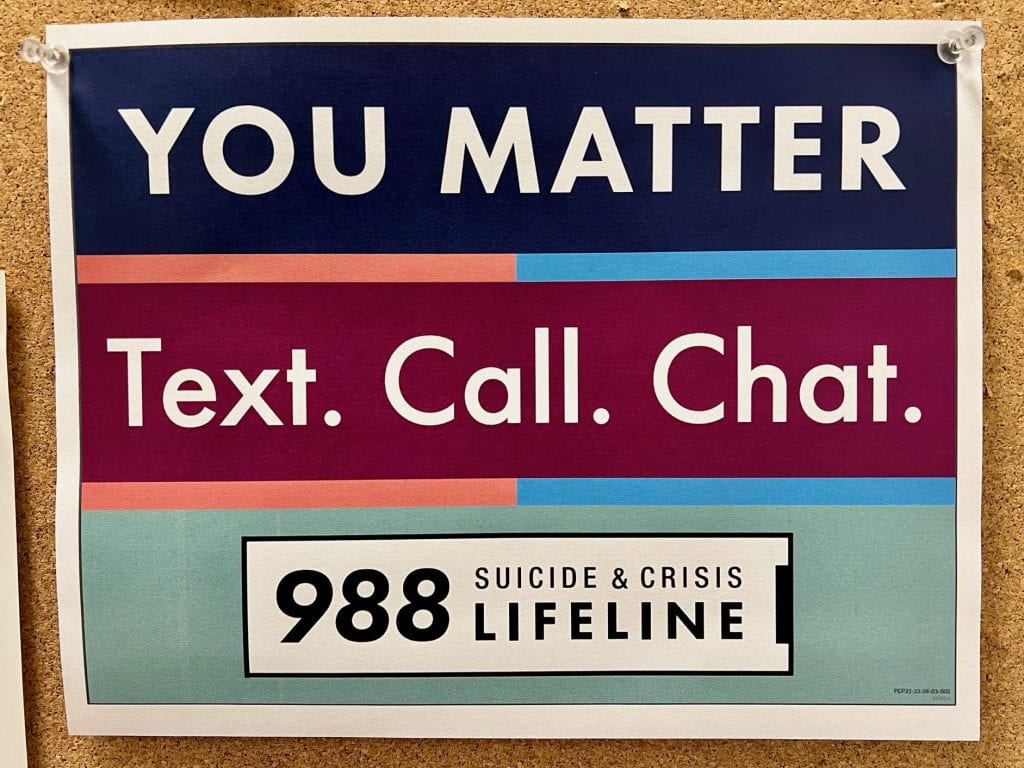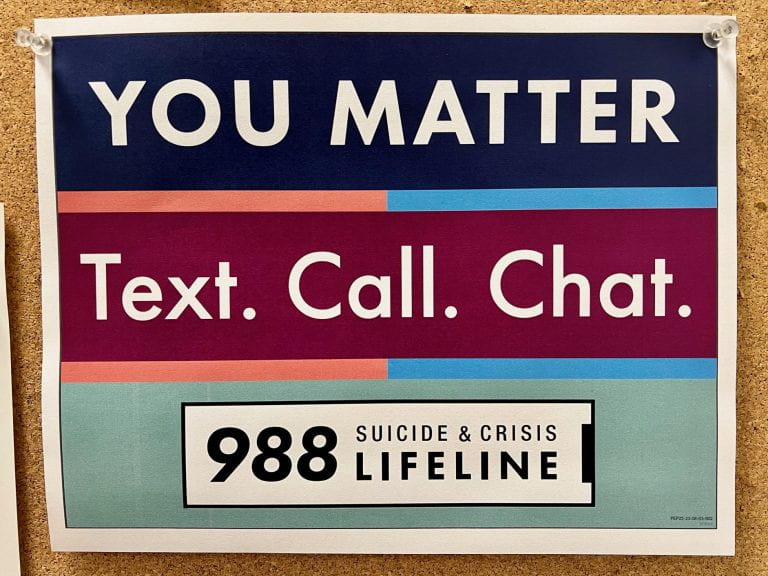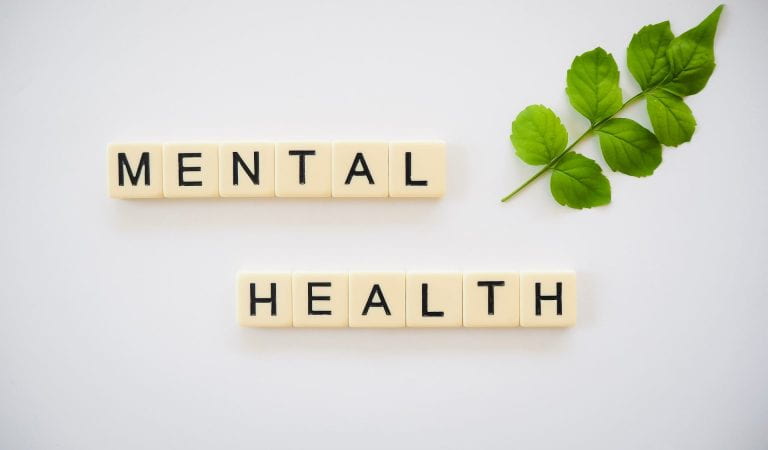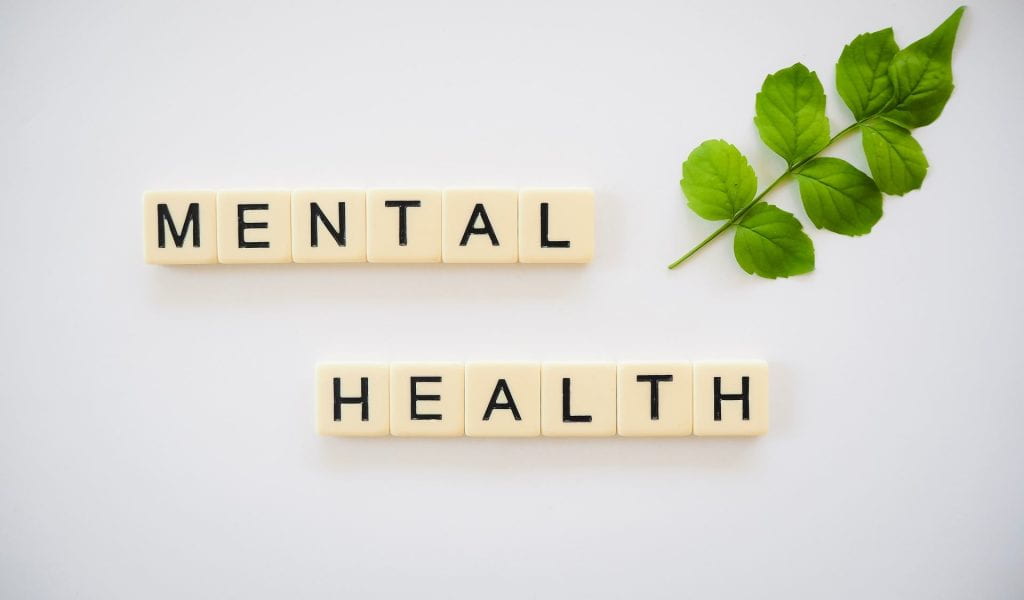
Mental health is a vital contributor to our overall physical health and well-being. However, the stigma surrounding mental health can prevent us from seeking out resources and reaching out for help during times of mental health struggles. If you or someone you know needs support, help and resources are available. Please know that you matter. You are not alone.
Suicide Prevention Resources:
- 988 Suicide and Crisis Lifeline: The Lifeline provides 24/7 access to free and confidential support for people in distress, prevention and crisis resources, and best practices information for health and mental health professionals.
- Student Health Center (SHC): If you are thinking about suicide, call 202-994-5300 (option 2). Counselors are available 24 hours a day. If you believe someone you know is in danger of suicide, call GW Emergency Services at 202-994-6111, 911, or seek help at the nearest Emergency Room.
- National Suicide Prevention Resources:
- CrisisLink: 800-SUICIDE (784-2433) (24 hours) or (703) 527-4077
- National Suicide Prevention Lifeline: 800-273-TALK (8255)
- Veterans Crisis Line: 800-273-8255 (press 1)
- District of Columbia Suicide Helpline:
- Access HelpLine: 888-7WE-HELP (888-793-4357)
Resources for Students:
- GW Listens: This student-run anonymous hotline (202-902-8255) is a place where students can talk to peers about struggles. Hotline hours are from Sunday through Thursday, from 9:00 pm to 1:00 am.
- Student Health Center (SHC): If you are thinking about suicide, call 202-994-5300 (option 2). Counselors are available 24 hours a day. If you believe someone you know is in danger of suicide, call GW Emergency Services at 202-994-6111, 911, or seek help at the nearest Emergency Room.
- TimelyCare: All GW students have free, 24/7 access to virtual care services with TimelyCare, a virtual health and well-being platform designed for college students.
- Counseling and Psychological Services (CAPS): Part of the Colonial Health Center, CAPS is GW’s center for mental health treatment. Telehealth and in-person counseling appointments are available.
Resources for Medical Residents and Fellows:
- GW Resiliency and Well-Being Center: The GW Resiliency and Well-Being Center takes an evidence-based, whole-person health approach in providing services to the GW School of Medicine and Health Sciences (SMHS), the GW Medical Faculty Associates (MFA), and the GW Hospital. If you need help, request a consultation.
- Graduate Medical Education Resources:
- Talkspace: GW’s School of Medicine and Health Sciences and GW Nursing are partnering with Talkspace to provide confidential and secure professional online therapy with a licensed therapist anytime, anywhere.
- GW Resources for Living (available in MedHub)
- Mistreatment Reporting (available in MedHub)
Resources for GW Employees:
- Behavioral Health Visits: Available to GW employees enrolled on a GW PPO or HSP medical plan.
- GW Resiliency and Well-Being Center: The GW Resiliency and Well-Being Center takes an evidence-based, whole-person health approach in providing services to the GW School of Medicine and Health Sciences (SMHS), the GW Medical Faculty Associates (MFA), and the GW Hospital. Request a consultation for you or your team. Resources available include:
- Headspace: This mindfulness app is available to benefits-eligible faculty and staff.
- Talkspace: Available to GW employees enrolled on a GW PPO or HSP medical plan.
- Self-Care Toolbox: Build your own self-care toolbox for improved mental health.
- GW Well-Being Programs: Explore the numerous physical, mental, and financial well-being programs available through GWell programs.
- GW CARE Network: The CARE Network connects GW Students who need support by connecting appropriate university departments and identifying the main point of contact for a student of concern.
Himmelfarb Library Mental Health Resources:
Himmelfarb’s Healthy Living @ Himmelfarb Collection includes several mental health-focused titles including:
- Managing Stress: Skills for Self-Care, Personal Resiliency, and Work-Life Balance in a Rapidly Changing World
- The Mindfulness Solution: Everyday Practices for Everyday Solutions
- Tips for Talking with Your Health Care Provider about Your Mental Health
- Mental Health: A Pocket Guide
- Healthy Living @ Himmelfarb Guide: Check out this great resource for more information on mental health and healthy living.
Take Care of Yourself and Those Around You
While it’s vital to take care of your mental health, it’s equally important to look out for one another. Check in with your friends, colleagues, and loved ones. Listen without judgment and offer support as you are able. Mental health involves taking care of yourself and those around you.
If someone you know is struggling with thoughts of suicide, reach out for help. Take advantage of the resources listed in this post. Don’t forget that the GW Resilience and Well-Being Center and the 988 Suicide and Crisis Lifeline (call or text 988 for help) are always available.







